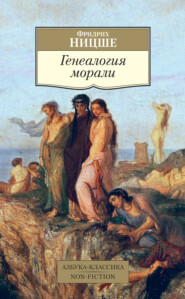По всем вопросам обращайтесь на: info@litportal.ru
(©) 2003-2024.
✖
Human, All-Too-Human: A Book For Free Spirits; Part II
Настройки чтения
Размер шрифта
Высота строк
Поля
The Wanderer: Reviling? But why did you never defend yourselves? After all, you were very close to our ears.
The Shadow: It seemed to us that we were too near you to have a right to talk of ourselves.
The Wanderer: What delicacy! Ah, you shadows are “better men”[30 - An allusion to the poem “Der Wilde” (The Savage) by Säume, which ends with the line, “Sehet, wir wilden sind doch bessere Menschen” (Behold, after all, we savages are better men). – Tr.] than we, I can see that.
The Shadow: And yet you called us “importunate” – us, who know one thing at least extremely well: how to be silent and to wait – no Englishman knows it better. It is true we are very, very often in the retinue of men, but never as their bondsmen. When man shuns light, we shun man – so far, at least, we are free.
The Wanderer: Ah, light shuns man far oftener, and then also you abandon him.
The Shadow: It has often pained me to leave you. I am eager for knowledge, and much in man has remained obscure to me, because I cannot always be in his company. At the price of complete knowledge of man I would gladly be your slave.
The Wanderer: Do you know, do I know, whether you would not then unwittingly become master instead of slave? Or would remain a slave indeed, but would lead a life of humiliation and disgust because you despised your master? Let us both be content with freedom such as you have enjoyed up to now – you and I! For the sight of a being not free would embitter my greatest joys; all that is best would be repugnant to me if any one had to share it with me – I will not hear of any slaves about me. That is why I do not care for the dog, that lazy, tail-wagging parasite, who first became “doggish” as the slave of man, and of whom they still say that he is loyal to his master and follows him like —
The Shadow: Like his shadow, they say. Perhaps I have already followed you too long to-day? It has been the longest day, but we are nearing the end; be patient a little more! The grass is damp; I am feeling chilly.
The Wanderer: Oh, is it already time to part? And I had to hurt you in the end – I saw you became darker.
The Shadow: I blushed the only colour I have at command. I remembered that I had often lain at your feet like a dog, and that you then —
The Wanderer: Can I not with all speed do something to please you? Have you no wish?
The Shadow: None, except perhaps the wish that the philosophic “dog”[31 - Diogenes, founder of the Cynic school, which derived its name from κυών (dog). – Tr.] expressed to Alexander the Great – just move a little out of my light; I feel cold.
The Wanderer: What am I to do?
The Shadow: Walk under those fir-trees and look around you towards the mountains; the sun is sinking.
The Wanderer: Where are you? Where are you?
notes
1
“Foreword” and “forword” would be the literal rendering of the play on words. – Tr.
2
The allusion is to the ending of the Second Part of Goethe's Faust– “das Ewig Weibliche Zieht uns hinan!” – “The Eternal Feminine Draweth us on!” – Tr.
3
It has been attempted to render the play on “Gewissen” and “Wissen.” – Tr.
4
Cf. John i. 1. – Tr.
5
The German word Mitfreude, coined by Nietzsche in opposition to Mitleid (sympathy), is untranslateable. – Tr.
6
Herostratus of Ephesus (in 356 b. c.) set fire to the temple of Diana in order (as he confessed on the rack) to gain notoriety. – Tr.
7
Quotation from Schiller, Don Carlos, i. 5. – Tr.
8
This, of course, refers to Jesus and Socrates. – Tr.
9
Queen of the Amazons, slain by Achilles in the Trojan War. – Tr.
10
From Schiller, Wallenstein's Lager: “Wer den Besten seiner Zeit genug gethan, der hat gelebt für alle Zeiten” (“He that has satisfied the best men of his time has lived for all time”).
11
In German Barockstil, i. e. the degenerate post-Renaissance style in art and literature, which spread from Italy in the seventeenth century. – Tr.
12
The original word, Freizügig, means, in the modern German Empire, possessing the free right of migration, without pecuniary burdens or other restrictions, from one German state to another. The play on words in Zug zur Freiheit (“impulse to freedom”) is untranslateable. – Tr.
13
Nietzsche seems to allude to his own case, for he ultimately contracted a myopia which bordered on blindness. – Tr.
14
The play on bergen (shelter) and verbergen (hide) is untranslateable. – Tr.
15
Allusion to German proverb: “Where there is nothing, the Emperor has lost his rights.” – Tr.
16
Genesis xiii. 9. – Tr.
17
Luke viii. 33. – Tr.

















